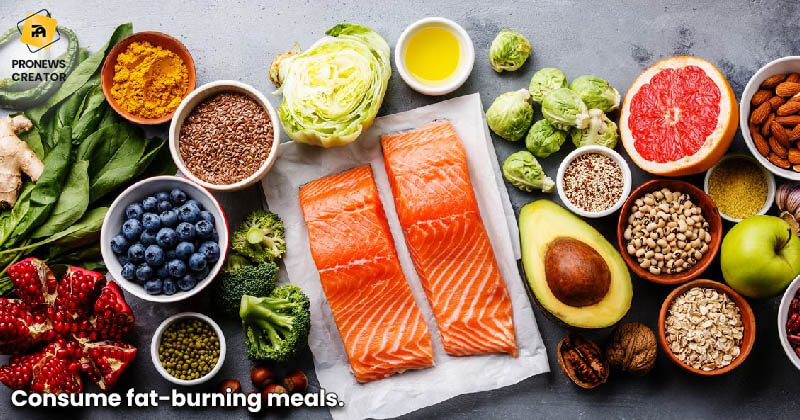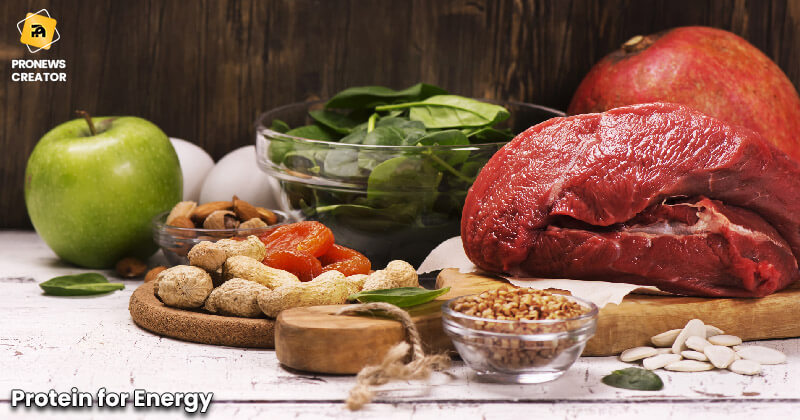Calories give the energy for the body to move, breathe, digest food, circulate blood, develop cells, repair wounds, and even think.
You can maintain a healthy metabolic rate for daily functions.
It is important to note that increasing metabolism may help people burn calories and yield weight.
This post also contains our seven strategies that answer how to improve metabolism. And significantly, metabolic regulation.
Table of Contents
What exactly is metabolism?
Metabolism is the quantity of energy or calories our bodies require daily to operate. The quicker your metabolism, the more calories or energy you burn during the day.

What effect does metabolism have on health?
Your metabolism is also in charge of turning the nutrients in the foods you eat into fuel. It gives the energy to your body to breathe, move, digest food, circulate blood, and repair damaged tissues and cells.
The more calories you burn at rest, the greater your metabolic rate. Many factors can influence your metabolism, including age, diet, gender, body size, and health state.

Top 14 Important Ways to Improve Metabolism
There are various simple and efficient methods for increasing your metabolism, including making little modifications to your food and lifestyle.
1. Avoid skipping meals
Begin your day right with a nutritious breakfast to improve metabolism at a faster rate. You can keep the furnace running, and you burn calories while digesting food.

2. Consume fat-burning meals
Protein, hot peppers, and green tea are all fat-burning substances that increase metabolism. Consume some of these foods, particularly protein, at each meal.

3. Do not lose weight too quickly
If you decrease weight too quickly or avoid crash dieting, so you can keep your metabolic rate from decreasing drastically. It makes it difficult to maintain, let alone shed, weight.
Researchers discovered that reducing weight results in a higher fall in metabolic rate than steady weight loss.

4. Protein for Energy
When you eat protein, your body burns far more calories than eating fat or carbohydrates. Some carbs can be replaced with lean, protein-rich foods as part of a balanced diet.
Replace some carbs with lean, protein-rich foods as part of a balanced diet to increase metabolism at lunchtime.

5. Have a cup of coffee
Caffeine in coffee has been found in studies to improve metabolism. It, like green tea, may boost fat burning.
Several studies have revealed that coffee’s impact on metabolism and fat burning can help you lose weight.

6. Increase your physical activity
Interval training can help you burn more calories in less time by including it in your fitness program. For instance, sprint for one minute and then stroll for two minutes. This pattern should be repeated for 20 to 30 minutes.

7. Move hefty objects
Muscle has a higher metabolic rate than fat. Building muscle can help to improve your metabolism and help you burn more calories, even if not exercising.
Lifting weights can also help you keep muscle and counteract the reduction in metabolism that might occur when you lose weight.

8. Stay away from crash diets
Crash diets, which involve consuming fewer than 1,200 (for a woman) or 1,800 (for a man) calories per day, are bad for anyone looking to speed up their metabolism.
Although these diets may help you lose weight, they do so at the price of proper nutrition.

9. Snack wisely
Eating more frequently can assist you in losing weight. When you eat heavy meals with long gaps between them, your metabolism slows down.
A little meal or snack every 3 to 4 hours keeps your metabolism going, allowing you to burn more calories throughout the day.

10. Consume green tea
Green tea can improve metabolism and fat burning.
When paired with exercise, these teas help transform some of the fat stored in your body into free fatty acids, which may enhance fat burning.
Because these teas are low in calories, they may be for weight loss and maintenance.

11. Muscle Up
Even when you’re not doing anything, your body burns calories. People with more muscle have a substantially higher resting metabolic rate.
Each pound of muscle consumes approximately 6 calories to maintain itself, whereas each pound of fat consumes only 2 calories daily.

12. Perform cardio exercises
When it comes to cardio (not including HIIT), you increase your calorie burn while you’re active, but HIIT and strength training will keep your metabolism raised for hours later, increasing fat burn for far longer than just the time you worked out.

13. Get enough rest
Individuals who get less sleep may have a decreased metabolic rate. The study was in a sleep laboratory, and individuals slept 4 hours per night for 5 nights, followed by a 12-hour sleep night.
Their metabolic rate dropped after the nights of insufficient sleep but restored to normal following the night of recovery sleep.

14. Increase your standing time
Too much sitting might be harmful to your health.
It is due in part to the fact that prolonged sitting burns fewer calories and might lead to weight gain.
If you work at a desk, try standing up for short periods to break up the time you spend sitting. You can also walk during the day or purchase a standing desk to improve metabolism.

How to improve metabolism that is very slow?
To improve your metabolism, consume 25 to 30 per cent of your daily calories as protein with each meal.
Aim for at least 8 hours of uninterrupted sleep per night. Consume probiotic meals (or take probiotic supplements). To keep stress at bay, meditate every day.

How long does it take to increase metabolic rate?
While some of the suggestions above may help you answer the question of how to improve metabolism, others may take a little longer.
| Diet | Degree of activity | Health status |
While some of the suggestions above may help you raise your metabolism rapidly, others may take a little longer.



